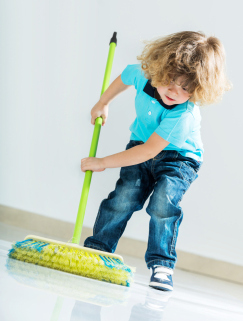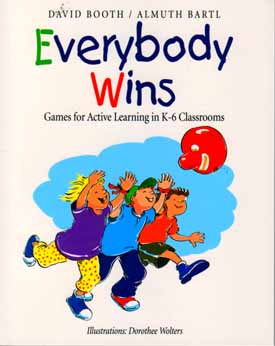My nephew is not your typical kid. From birth, he loves to help. He loves being useful. He loves being a contributing member of the household.
If I would ask him to help me by sweeping the floor, he happily hauls out the broom and shovel, even though there's a chance they may tip him over. With grit and determination, even though he can barely manipulate the broom, he manages to get the job done. Then he marches about, his chest puffed out with smug accomplishment. He swept the floor, y'all.

Kids know when they have earned merit, and when adults are humoring them. Speaking from experience, trying, even if one doesn't succeed, is not always a letdown. There is satisfaction just in applying oneself.
Ergo, "Losing is Good For You" by Ashley Merryman. In the unprovoked terror that a child may not feel included or "special," awards are flung at them in the desperate attempt to instill a healthy ego. One problem: Children are not stupid.
When my morah picked out my picture of Har Sinai to hang on the wall, I felt like a million bucks. If she papered everyone's drawing on there, would I have cared? Obviously, no.

The college kids who were once little-leaguers who got trophies just for playing feel that showing up class is all that is needed. When they enter the workforce, coming in to work is effort enough.
When children make mistakes, our job should not be to spin those losses into decorated victories. Instead, our job is to help kids overcome setbacks, to help them see that progress over time is more important than a particular win or loss, and to help them graciously congratulate the child who succeeded when they failed. . .
This school year, let’s fight for a kid’s right to lose.
Brené Brown is emphatic on this:
Children are “hard-wired for struggle when they get here . . .When you hold those perfect little babies in your hand, our job is not to say: ‘Look at them, look at her, she’s perfect. My job is just to keep her perfect and make sure she makes the tennis team by 5th grade and Yale by seventh grade.’ That’s not our job. Our job is to look and say, ‘You know what, you’re imperfect and you’re hard-wired for struggle, but you are worthy of love and belonging.”
Not so long ago children were not treated with kid gloves (no pun intended). A lot was demanded of them. Life was not easy, and parents saw no need to shield their offspring from that. How else were they to survive?
As Brown said, we are born to struggle. We are not here to suddenly pick up the gauntlet when we reach the arbitrary age that heralds "adulthood."
As Jane Brody writes ("Life's Hard Lessons") hard times are beneficial for adults as well.
The point: often faith in oneself prevails over temporary obstacles . . . True, sometimes we have only ourselves to blame for these obstacles. Yet mistakes, if dwelled upon, can easily erode a person’s ego. My late husband once told me he remembered every mistake he’d ever made, which may have contributed to his propensity for depression.
“Mistakes are our best teachers, so don’t waste them,” Dr. Rosenthal wrote. “Acknowledge them, learn from them, and become more competent because of them.”
The only way to have faith in oneself is to have proof that one has come across difficulty before and made it. The best time to learn that is when one is young.
Hey, can u please email me? Lifeonacottonball@gmail.com. Thanks.
ReplyDelete